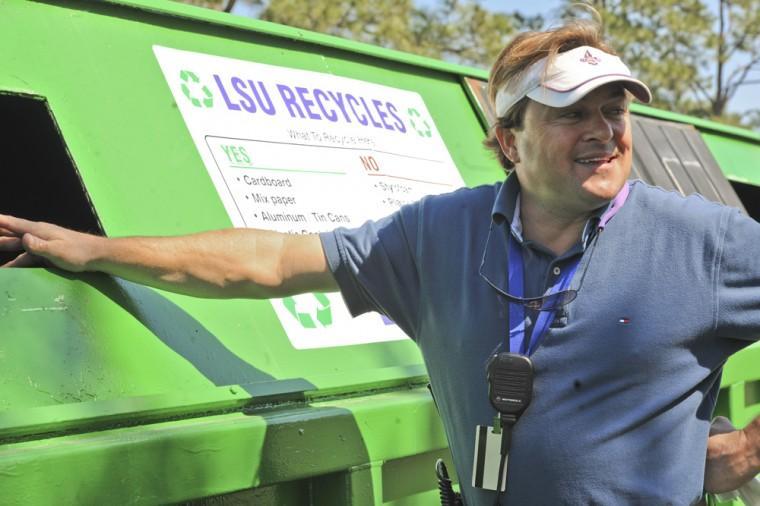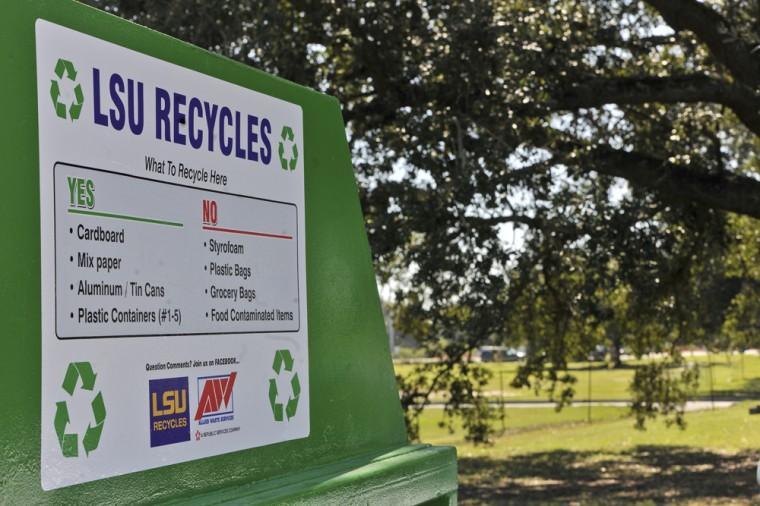Bright sunshine and cool temperatures made Tuesday an enjoyable, outdoorsy day for many students, but Campus Sustainability had other reasons to celebrate.
The primary reasons included a large green recycling dumpster and a $10,000 grant that will go toward purchasing 1,000 new, bigger recycling bins to strengthen the roughly 1,500 bin fleet already in use during tailgating season and some campus events, like Fall Fest.
The 24-gallon blue bins will allow more recycling to take place with less manpower, since the current 18-gallon green bins provided by the city are too small and, in some cases, falling apart, said Denise Newell, Campus Sustainability manager.
“We definitely need more bins because [the old ones] fill up so fast,” Newell said.
The recycling dumpster arrived Tuesday, lathered in green paint, awaiting cans, old papers and other recyclables to fill its 25 cubic yard capacity.
The dumpster was brought in by Campus Recycling for off-campus students, as a place to come drop off their recyclables if they didn’t have convenient options at home.
Unlike many dumpsters, the top is sealed shut, so people will not throw in non-recyclable items, which can create all kinds of problems when the time to sort the items comes around, said Campus Recycling manager Andres Harris.
Odd items such as washing machines, dead animals and huge pipes, as well as many others, have ended up in bins before, Harris said.
The dumpster itself came from behind Edward Gay Apartments, having originally been donated to Residential Life from Walmart years ago. One similar in size would cost about $7,000 today, Harris said.
Those who wish to recycle should place the items into one of three holes along either side of the dumpster, he said, only needing to push back the sliding door covering the holes to do so.
“By having this, [students] can keep their green bug happy,” Harris said.
He said they chose the location, set in between Campus Federal and Walk On’s, because many community-driven events such as the Susan G. Komen Race for the Cure, as well as baseball and football tailgates, set up in the grassy fields behind the parking lot.
The University has boosted its recycling numbers dramatically in recent years, going from about 300 tons a year in 2005 to 1,500 tons last year, Harris said.
According to Campus Sustainability, 95 percent of University paper comes from 30 percent recycled content, 73 percent of students use sustainable commuting options and 34 percent of waste was diverted from landfills to recycling factories in 2011.








